- People
- David Axelrod
- Robert Gibbs
- Newton Minow
- Dan Balz
- Jim Clyburn
- David Mendell
- Ron Brownstein
- Matt Bai
- Tom Daschle
- Gary Hart
- Related Links
- Keynote Address at the 2004 Democratic National Convention
Video and text of the speech - The Speech
"A behind-the-scenes look at the politicking, plotting, and preparation that went into Obama's breakthrough moment." (Chicago Magazine, June 2007) - Barack's Big Night
"The inside story of how did he got the gig -- and who really deserves credit for it." (The New Republic, Aug. 25, 2008)
David Axelrod Chief strategist, Obama campaign
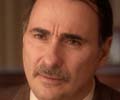 Read the full interview >
Read the full interview >
He really had a concept almost immediately in his head of what he wanted to communicate. And over the course of the next few weeks, he would write little bits and pieces on scraps of paper. He would go into the men's room in the state Senate and jot things down. And eventually he sat down, brought all his scraps of paper together, and he banged out a draft of this speech.
I was in Europe on a brief vacation with my wife, and this fax arrived. It was his speech draft. By about the third page, I realized this is going to be one of the great convention speeches of all time. ...
This was confirmed the next day [after the convention,] when we walked through the streets of Boston and people were just mobbing Obama to congratulate him on the speech and tell him how much they appreciated it and so on. His life changed overnight, really, with that speech.
Robert Gibbs Communications director, Obama campaign
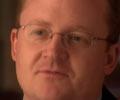
We talk about the fact that he worked on it in Springfield in a hotel room, but the truth probably is that he had been working on this speech in his head for a really long time. Because the anecdotes and examples that he uses throughout the speech were people that he himself had met along the campaign trail throughout Illinois, whether it was in a VFW hall or in a town hall meeting or, you know, just talking to a woman about some of the issues that she faced. ...
I remember David [Axelrod] and I are standing in the hall. ... We really [didn't want] to see it on a monitor in a green room. We wanted to be among people and sort of gauge their reactions. And I can remember a TV commentator who had been, in a different life, a speechwriter standing in front of us, holding the text of the speech very early on and looking at his friend and saying, "This is a hell of a speech." And we thought, maybe we're onto something here.
Then it was pretty clear about halfway through the speech that we were seeing something truly, truly special. I can remember David and I sort of looking at each other thinking, can you believe this? It was a real touching time. It was something to be monumentally proud of. We were on cloud nine the rest of the time of the convention.
Newton Minow Senior counsel, Sidley Austin LLP; Obama mentor
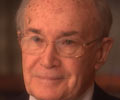 Read the full interview >
Read the full interview >
When you're watching your friend, as you call him, Barack Obama, come out and give that speech that night, what are you feeling?
I had to brush away a tear. I felt, America is growing up. And I also felt, I wish Jack Kennedy could have seen this. ...
We had a fundraiser for him before the speech, when he was running for Senate. We could not get anybody to come. So my wife called [him] and said: "Barack, I'm sorry, but we can't get anybody to come. We're going to have to cancel it." And he said, "No, no, no." He said, "Never cancel a fundraiser." He said, "I'll bring some people. We'll fill up the place." And then we got a few, a handful. But at that time, before the speech, it was very tough to raise money for him.
And then?
And then it was all different. Then he was a national hero. ... That's the power of television. That's the power of a good speech. The country is hungry for that.

The irony is that he had not been known at that point as a great orator. I remember a conversation I had with one of his advisers at that time, and this was in the pre-speech stage. I said, "Is Barack Obama a great orator?" And he said, "He's a great writer," but he said, "he's not a great orator." So I said to him afterwards, "You were holding out on me!" ...
It was a combination, I think, of the content of the speech, the extraordinary delivery, the hunger of the Democratic Party to find some new energy, and the fact that Barack Obama was African American, [of] biracial parents -- the whole combination added up to something the Democrats hadn't had before, and I think that everybody was energized by that.
Jim Clyburn House Majority Whip (D-S.C.)
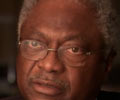
I think that what really connected [Obama] was the self-deprecating humor in the speech. Oratory is not all that unusual for African Americans, and so I don't think that we were particularly impressed with the speech itself, as far as his oratorical skills are concerned. I mean, you grow up marching with and listening to the Martin Luther King Jr.'s words, and my father wasn't too bad at that himself. So what I remembered about the speech, more than anything else, was that self-deprecating humor.
David Mendell Author, Obama: From Promise to Power
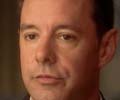
[Obama] knew that was his moment. He was stepping onto the national stage that night. He knew he had to deliver that night, and he wound up hitting the ball out of the ballpark.
That's why I started my book the way I did, with this anecdote about how he's walking around the outside of the Boston FleetCenter arena. He was in this real cocky strut of his, which you can see quite frequently. He was like an athlete gearing up for the big game, and he kind of looked like that. ...
I said, "You seem to be doing fine this week. Everybody seems to really be taking to you well." And he said: "I got some game. I can play at this level. I'm LeBron, baby." He was comparing himself, obviously, to LeBron James, the phenom in the NBA at that point.
And it was an apt analogy. ... He had to hit that key shot if his career was going to go where he wanted it to go. And so he, like a gifted athlete, has to be in that frame of mind that they want the ball in the final minute. ... Obama has that psyche for a politician: He wants to be in the game; he wants to be the go-to guy.
Ron Brownstein The National Journal; author The Second Civil War
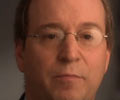
In 2004, what made [Obama] attractive to the Kerry team was his message of reaching beyond red and blue and trying to unify the country. That had a distinct and grounded backdrop in the Bush experience. One of the central critiques of the Bush presidency, not only from Democrats but even from many independents and centrists, was that he had divided the country relentlessly. And in fact, they kind of welcome division as a governing strategy, as a means of solidifying, if not really enlarging, his majority.
And here's Obama, a political figure whose message fundamentally challenges that, and whose personal story seems to crystallize his message. What has always been part of Obama's strength is that he is the embodiment of what he talks about. He is [of] mixed race, mixed nationality, someone who has spent his entire life in different ways, even as a schoolboy, bridging cultures. And in all those ways, he seemed an antidote or the opposite of the way Bush, certainly in the eyes of Democrats, had governed the country.
Matt Bai The New York Times Magazine; author, The Argument
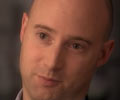
I remember saying to people in 2004 at the convention, "This is not a good thing for the Democratic Party, when your greatest face for the future, when the voice of your party, the guy you're going to put forward, has never been elected to a statewide office. There's a problem with bench talent in your party." ... Sure, he's a tremendous talent, but what's he done? …
But in sheer political ability, it doesn't take a lot of exposure to Barack Obama to understand how talented he really is.
How hungry [was] the crowd for somebody like Obama at that particular moment in Boston?
Extraordinarily hungry. This is a party that has been desperate for leadership -- not just leadership about where to take the country and where to take the party, but someone who makes them feel good about Democrats. The modern and most successful leadership of the Democratic Party built their pitch to Democrats on the basis that the party had gone wrong, that it was wrong to be too liberal, that it was impossible politically to be where a lot of Democrats were after the 1960s and 1970s, and that you had to somehow modulate your behavior and your rhetoric. ... That was the Clinton message that a lot of Democrats heard. ...
And so especially the activists who got into politics in the 1960s and 1970s, and a lot of the younger activists who were coming in later during the Bush era, were absolutely starving for somebody to come along and tell them, as Howard Dean did: "It's OK to be a real Democrat, it's OK to be liberal. You can get elected as a traditional Democrat." But also to do it unlike Dean, to do it in such a way that inspires people outside that particular ideological mindset, [someone] who had the ability to translate that feeling to a wider part of America. That's what a lot of people saw in Obama.
Tom Daschle Former Senate majority leader, 2001-'03 (D-S.D.)
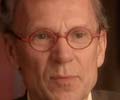 Read the full interview >
Read the full interview >
[In] Barack Obama, you had a young person who had never been on the national scene, not even elected to the United States Senate. A state senator and an African American, who spoke in a way that just electrified the crowd.
I think, to a certain extent, it was low expectations. Nobody had ever heard of this guy before. He was there, some people thought, maybe because of the symbolism of an African American speaking at a national convention and this was the future of our party and the country. … So, he benefited in part from that. But it was really one of the most eloquent, most powerful speeches that anyone had heard at a convention in a long time.
Gary Hart Former senator, 1975-'87 (D-Colo.)
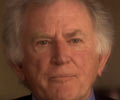
I think when a new figure arrives in politics it's a product of two things: one, a combination of intelligence and charisma, or a striking personality, and second, the need for generational change. That breakthrough person is almost never a 65-year-old. That person is almost always 40 to 45 years old. There is an instinct in human beings that is always looking for the next leader. And I don't think any of us think about that, but it's just innate: Who's next? I don't want to overdramatize it, but is there a political messiah on the horizon or just over the horizon?
It's instinctive, particularly when things in the country get stuck, and people sense the need for change. They may not be able to articulate exactly what they mean by that, but they just sense that the country is stuck, stagnated, and something, somebody has to come along and get it unstuck. They almost never look at the existing cast of characters. They almost always start looking for a new leader. And I think [Obama] came along at that time.